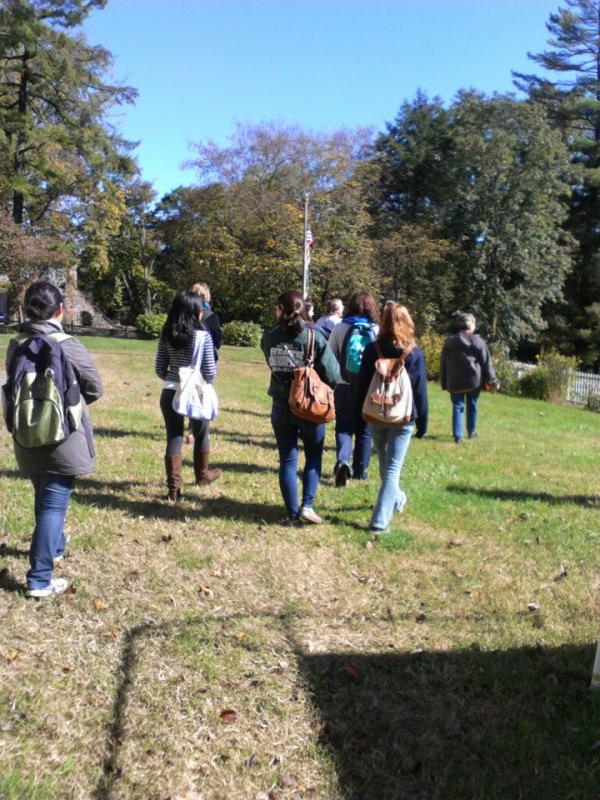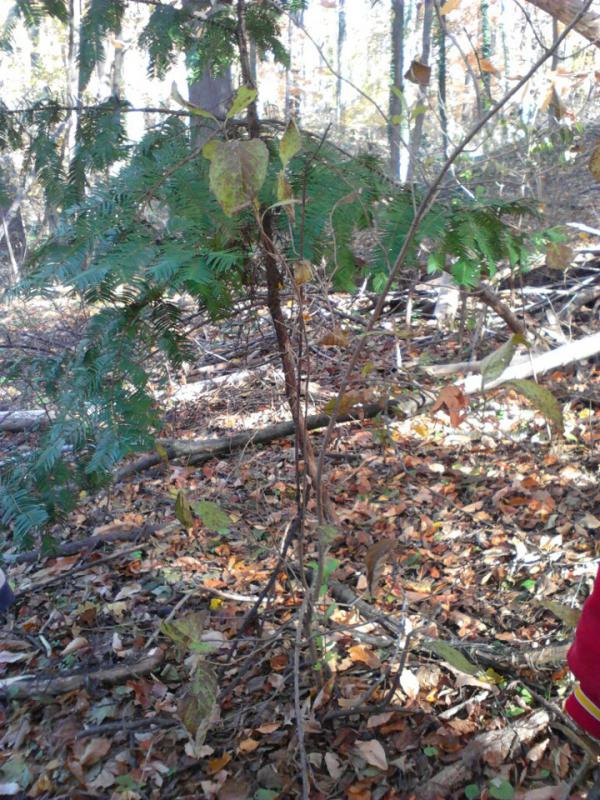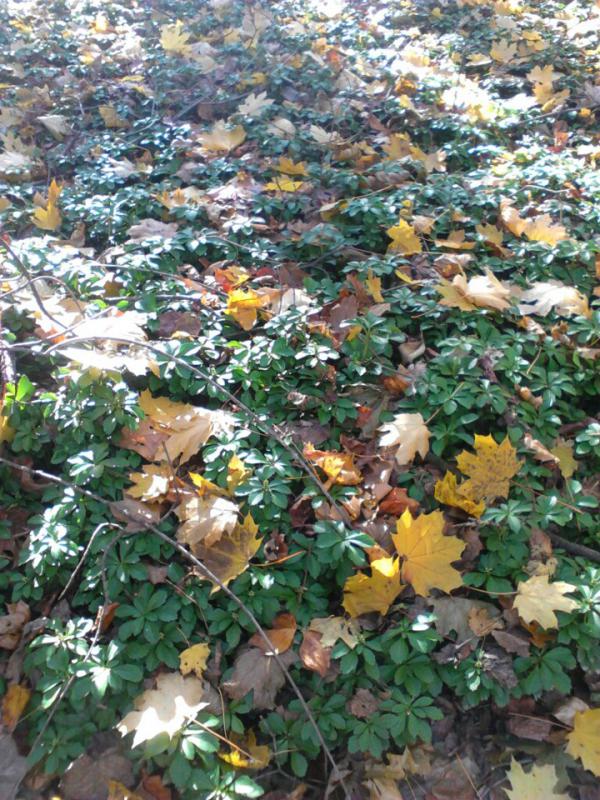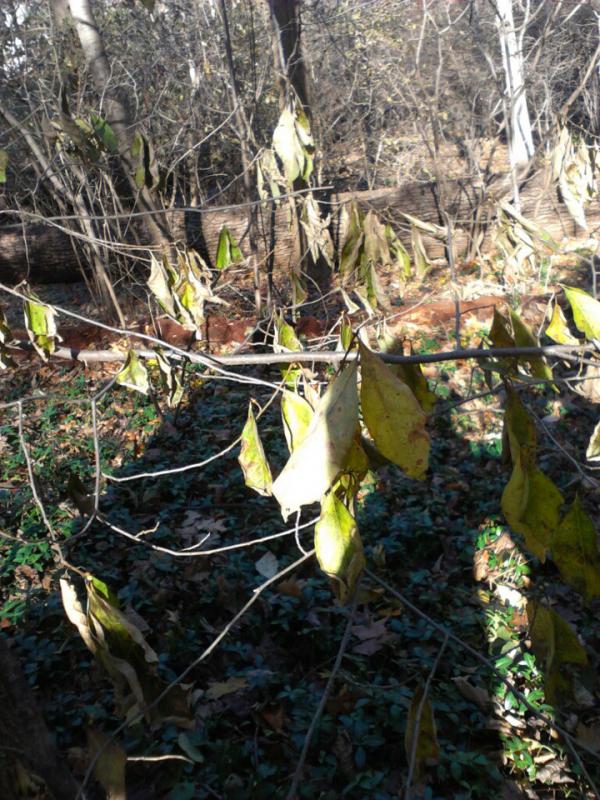Serendip is an independent site partnering with faculty at multiple colleges and universities around the world. Happy exploring!
wanhong's blog
Sky Burial--Back to nature
I had a very happy time preparing the Teach-in with Barbara and Shengjia. I borrowed some book from Swat library so that we could find some good supporting materials about the Sky Burial Process. I focused on the cultural background of Sky Burial and found that Sky Burial, for Tibetan people, was not only a way for "gainning better rebirth", but also an important ceremony for worship nature.
I was impressed by the wisdom and reasoning behind Sky Burial. People made a non-profit "fair trade" with natural world to well balance their survival and belief, and I think their effort, however controversial in legal perspective, should really be appreciated and respected.
Also, I learnt many things from my Teach-in partners, Barbara and Shengjia. Barbara was really good at showing and describing the Sky Burial process, and Shengjia perfectly joinned parts of components together--from sites on school to "journey to Tibet".
I think Teach-in is a very good activity at the end of semester. Because of the Teach-in, I had the chance to work with my friend and provide my classmates more information on an interesting topic related with what we have learnt this semester.
Wonderland
Instead of shaking in the darkness, I watched the starry scene in front of me. It was six 'o clock, but the sky was already darkened. There were no stars, but there were lights from countless windows far away from me. What I saw didn't seem to be true.
When I first walked into Bryn Mawr, it was a Wonderland to me. Now it still is--the only difference is that I KNOW it is real. No matter during the day or at night, it looked like a place in fantasy. The flowers, trees, and old buildings--yes, those, at day time, not after the dawn.
How many people have sat on the bench, wondering--"why am I here, what do I see?"
The lights were glowing, shining as if they were showing off in the darkness. We still don't want to blend in the night, do we? We need artificial lights to feel safe--we just need that feeling.
The Beauty of Subjectivity--For All Nature Writers

My Ecological Imaginings Class at Bryn College led me to an amazing adventure, rather than journey, to explore the concepts of nature and write about it. The most important thing that I have noticed, after writing essays and participating in class discussions, is that there should be no scale for writing nature when we are thinking ecologically. It is important for every nature writer to know that there is always an essential and unavoidable diversity in writings due to various personal background and beliefs, and what we should try to do is, rather than objecting other peoples’ opinions severely, developing new ideas based on them.
The author of almost every reading material for our class was trying to tell us how we “should” perceive the relationship between human and nature or what the standard of “good, natural” writing is, and it had taken me a long time before I realized that I could academically benefit from their seemingly judgmental ideas. In his introduction to The Dream of the Earth, Thomas Berry wrote that “we must now understand that our own well-being can be achieved only through the well-being of the entire natural world about us” (<?xml:namespace prefix = st1 />Berry, Introduction XV). In Women Writing Nature—A Feminist View, Barbara J.
Incapable
In The Lives of Animals, Coetzee adressed the question: “If we are capable of thinking our own death, why on earth should we not be capable of thinking our way into the life of a bat?”
As the question was being addressed with intensity, it could not be easily be explained by a simple sentence saying--"we are not bats"--although this is what I was thinking right after I read this question.
And the question could extend to--Are we capable of thinking from the perspective of another animal, live or dead?
I believe that some of us are capable--and I mean psychics. Like Oda Mae Brown in Ghost, psychics could embrace another soul into their body. Also, when we are caught by a spell, we could become little mouse, birds, etc.
Back to "reality", under many circumstances, when the "animal side", or shall I say, the beast-like part, of our soul is activated, we are thinking like any other animal--like the Nazi example in this book. So yes, we are capable of thinking as an animal, but not a nice one. We could never think like a nice, innocent little rabbit (unless we are infants) because I think the only intersection of cognitive process between human and other animal is that related to the same type of desire we have, not virtue, not ethics.
Extending discussions about "Ecology without Nature" in class
In class we discussed "Ecology without Nature"(12-13+a paragraph on top of P14), and these are some answers from Barbara and I. Barbara and I shared opinions with each other in class and came up with these ideas:
1. What is truely theoretical approach?
According to the reading material we think it means thinking slowly, carefully in a aesthetic, appreciative way and question the original idea instead of putting it into action immediately.
It actually reminds me of an old Chinese saying: "thinking thrice before proceding".
2. What is "deconstruction" in ecological thinking?
To be honest, at first I thought it was "destruction"...then I looked at it again and realized that it meant something different! From the context, Morton's idea was "thoroughly examines how nature is set up as a transcendental, unified, independent category". I think this means the opposite of thinking the ecosystem as interconnected. In fact, "deconstruction" was also a type of medical teaching, meaning to learn human body system by parts, rather than viewing as a whole.
"Stray Birds"--Warm, beautiful poems
I have been wondering why we haven't encountered much poetry in class. Rabindranath Tagore is my favourite poet, and he wrote beautiful words such as "We live in this world when we love it"
(For more about short poems in Stray Birds: <http://www.poetseers.org/nobel-prize-for-literature/tagore/stray/>.)
I encountered a small book called "Stray Birds" when I was in junior middle school. One of the main reasons that I like many his poems is that he merged emotions into nature and vice versa in such a smooth way that there were no such conflicts, arguments, but plain feeling of peace and being surrounded by love. His words are immortal, because he talks about the eternal universe. When he looked at something and described it, he did so with such appreciation, and respect.
His attitude to readers was also different from that of any authors of our in-class material(--I am not "complaining" because we do need to do lots of work on academic writing)--He was teaching you something, but not with the strong feeling of having to tell the reader "listen to me, I am right! I am the authority!",or with a list of scientific facts--he simply told short stories in his poems, but making readers feel that your imagination has just began to float when the story ended. His gentle, warm words about nature could for many times release me somehow for tense academic readings.
Biological Tour!
Our biological tour was amazing, not only because of the plant species we were shown but also because I found many interesting "natural crafts" around the campus.
So, what are these plants?

This is the leaf of a yew. It is, surprisingly, slightly toxic, but its toxicity could help treat cancer if used properly.It is more dominate here than many native species and thrives at central east part of the country. Some Tulip Trees grow well around Yews.

Verbinum is the theoretically invasive plant here! Its leaves has a smell of green pepper even when they are fading in color.

The green, ignorable plants under our feet are called Pokey Sundra. There are so many of them!

The lovely Spicy Bush has a lemon smell, and they looks as yellow as lemon as well. We found some of them right next to Verbinum.
There were so many plants inside and around the campus, and it is exciting for us to learn their names!
The Most Dangerous Game
Whole Story: http://fiction.eserver.org/short/the_most_dangerous_game.html
Video(on youtube):http://www.youtube.com/watch?v=Nhhc0whITrU
Maybe you have picked flowers, hunter rabbits, or larger beasts, but have you ever hunter another HUMAN?
"The Most Dangerous Game" is a story that I read in high school, but now when I read it again, I have more ideas emerging in my mind. This story also explain my idea of what "the unspoken hunger" is--the desire for vitality, for being physically strong, being the controller of a game--of life. This hunger, or desire, of a challenging hunting for life hides under the General's cultivated appearance, but it had never faded.
Fundamental Difference between Taoism and Buddhism
I want to emphasize a very important difference between Taoism and Buddhism, the two very big philosophical system in Eastern world, as in a previous reading both are used as examples of advocating the idea of being nice to nature.
Both Taoism and Buddhism have the idea of "following the rhythm of nature", but their goal are completely different.
In taoism, people follow the rhythm of the nature, be peaceful in mind, make "magical medical spherical pills" to prolong life--in other words, to try one's best avoid death, but in Buddhism, death is actually the start of a new, wiser life, and should be accepted peacefully. So, although both system tells one to be nice to nature and peace in mind, Buddhism provided a more altruistic idea while Taoism care relatively more about one's own well being. Taoism has borrowed many ideas from Buddhism but for a different goal.
Why ethical? How ethical?
“We can be ethical only in relation to something we can see, feel, understand, love, or otherwise have faith in.”--Aldo Leopold
I support this idea because I think we, as human beings, are born to think in a relatively anthropocentric way, which means we usually care about something starting from caring about ourselves. This is instinctive because our feelings originated from every neuro, every impulse in our body and mind are those that affect our decisions at the first place. At the very beginning of human species, trees are cut to make shelters, and animals are consumed to provide energy for survival. That is--we started consuming "resources" for our basic needs, not wants. Then we desire more, and consume more--to satisfy our wants, our psychological need--possibly the feeling of being admired. As a result, people around the world would worship land, water, trees, flowers, etc.
Is this idea wrong? I don't think so--it actually means that we are ethical to everything we know, because everything in this world is related to us in someway. If we don't know or understand something, we would, of course, know how it could affect us, and therefore would not even notice it. If we cannot notice it, we are not in relation to it, how could we feel ethical in relation to it?


